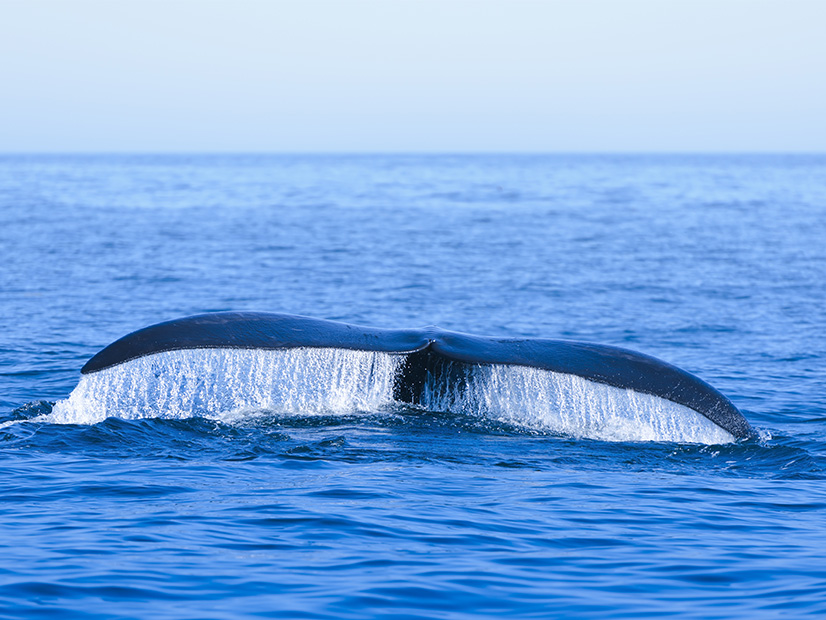
The advocacy group Nantucket Residents Against Turbines filed a federal lawsuit on Wednesday against the Bureau of Ocean Energy Management, claiming the agency did not comply with environmental laws when it approved Vineyard Wind’s project off the coast of Nantucket, Mass.
The group pointed to the North Atlantic Right Whale as a reason to halt construction of offshore wind farms south of the island, a “nexus of activity” for a critically endangered whale species with a remaining global population of fewer than 400.
“Some people oppose the industrial offshore development because it will harm their ocean view,” result in higher electricity rates and hurt commercial fishing, Val Oliver, co-founder of the group, said in a statement. “While those all are valid and true concerns, what motivates us in our opposition to the industrial offshore development is the fact that it will result in the destruction of our ocean floor, its ecosystem and have a deadly impact to countless bugs, birds, bats, fish and the critically endangered North Atlantic Right Whale.”
But Francis Pullaro, executive director of RENEW Northeast, told NetZero Insider that he is “somewhat skeptical” of the group’s true motivation for legally challenging the OSW industry in Massachusetts.
“There has been a history of concern about visual impact,” Pullaro said.
During a press conference on Wednesday, speakers on behalf of the group of residents indicated they would not be concerned about the turbines if they were built further offshore, which “demonstrates the group’s intent is not about saving the environment but aesthetic,” Pullaro said.
Before the Biden administration issued final permits in May for Vineyard Wind, the first commercial-scale OSW project in the U.S., the permitting process was paused for a cumulative impact review because of the precedent the project would set.
However, if the group is raising specific concerns about the impact of offshore wind turbines in the lawsuit, “we will certainly look at them,” Pullaro said.
The lawsuit claims BOEM did not comply with the National Environmental Policy Act because the final environmental impact statement (EIS) does not “analyze an adequate range of alternatives” or “adequately analyze the project’s impact on the human and natural environment.”
The group also states in the lawsuit that the EIS “relies on outdated, inaccurate, incomplete and inadequate information.”
In the final EIS, BOEM said the project “could include effects on habitat or individual members of protected species, as well as potential loss of use of commercial fishing areas.”
North Atlantic Right Whales “can’t handle another stress level,” Mary Chalke, another co-founder of Nantucket Residents Against Turbines, said during the press conference.
“A year ago, many environmental scientists testified to this fact in a public comment letter,” Chalke said in a statement. “Our lawsuit hopes to intervene in order to protect our ocean and the important wildlife that inhabits it.”
